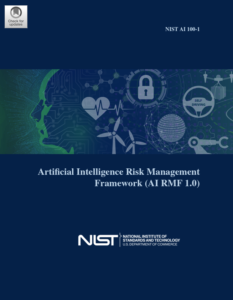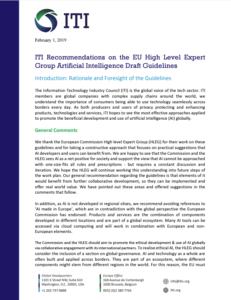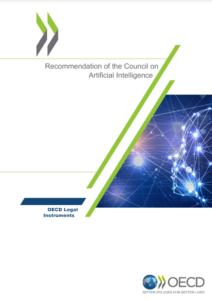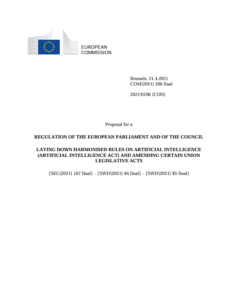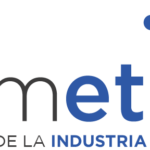Founded Responsible Innovation at Google, one of the first institutions worldwide to adopt AI Principles to shape how AI is developed and deployed responsibly.
Informed governmental and private AI programs on how to manage and implement AI risks.
Contributed to EU AI Act, UK Safety Principles, G7 Code of Conduct, OECD AI Principles & NIST.
International Panellist & Speaker (Davos, World Economic Forum, UNESCO, etc.).
Responsible AI for me means taking deliberate steps to ensure technology works the way it’s intended to and doesn’t lead to malicious or unintended negative consequences
Jen Gennai – Responsible AI Powerhouse
Recognized Industry Leader in AI
Jen founded the Responsible Innovation team at Google, tasked with integrating ethical considerations into AI development. Her team worked with product and engineering teams, leveraging expertise in ethics, human rights, user research, racial justice, and gender equity to validate that Google’s AI products align with commitments to fairness, privacy, safety, and societal benefit.
She co-authored Google’s AI Principles in 2017, which serve as the ethical charter guiding the development and deployment of AI across the company. These principles include commitments to fairness, accountability, privacy, and avoiding harmful or biased outcomes.
Jen’s contributions to AI ethics have made her a prominent figure in the field, recognized for her efforts to balance innovation with ethical responsibility. Her work has been highlighted in various forums and conferences, underscoring her influence in shaping responsible AI practices.
Jen Gennai - speaking at re:publica (Berlin, Germany - June 2023)
Focus on AI Ethics
Jen’s focus is on ensuring that AI technologies are developed and deployed in ways that are beneficial to society and do not exacerbate inequalities or cause harm.
This involves:
- Implementing Fairness Testing: Establishing rigorous testing protocols to identify and address biases in AI systems.
- Enhancing Transparency: Making AI systems’ decision-making processes more understandable and interpretable to users.
- Governance and Accountability: Creating structures that hold AI systems accountable to ethical standards and principles.
Through her leadership, Jen Gennai is at the forefront of integrating ethical considerations into the rapidly evolving field of AI, ensuring that technological advancements contribute positively to society.
Influence in AI Policymaking & Frameworks
Other Expert contributions to ISO/IEC AI for SC 42, G7 Code of Conduct, WH Commitments, UK Safety Principles.
In the Press
Jen founded the Responsible Innovation team at Google, tasked with integrating ethical considerations into AI development. Her team worked with product and engineering teams, leveraging expertise in ethics, human rights, user research, racial justice, and gender equity to validate that Google’s AI products align with commitments to fairness, privacy, safety, and societal benefit.
She co-authored Google’s AI Principles in 2017, which serve as the ethical charter guiding the development and deployment of AI across the company. These principles include commitments to fairness, accountability, privacy, and avoiding harmful or biased outcomes.
Jen’s contributions to AI ethics have made her a prominent figure in the field, recognized for her efforts to balance innovation with ethical responsibility. Her work has been highlighted in various forums and conferences, underscoring her influence in shaping responsible AI practices.
International Panellist & Speaker
Jen founded the Responsible Innovation team at Google, tasked with integrating ethical considerations into AI development. Her team worked with product and engineering teams, leveraging expertise in ethics, human rights, user research, racial justice, and gender equity to validate that Google’s AI products align with commitments to fairness, privacy, safety, and societal benefit.
She co-authored Google’s AI Principles in 2017, which serve as the ethical charter guiding the development and deployment of AI across the company. These principles include commitments to fairness, accountability, privacy, and avoiding harmful or biased outcomes.
Jen’s contributions to AI ethics have made her a prominent figure in the field, recognized for her efforts to balance innovation with ethical responsibility. Her work has been highlighted in various forums and conferences, underscoring her influence in shaping responsible AI practices.
In the Press
Also in Wired, Aufbruch, CNN Chile, Wall Street Journal, Washington Post, etc.
International Panellist & Speaker
Also participated in Unesco (Chile), Moral & Machines (Germany), Digital Summit (Ireland), Impact CEE (Poland), Google I/O & Google CEO forum (US), the United Nations (US), Brookings (US), World 50 (US), AI.LA (US), VentureBeat (US), etc.
AI Expert witness in Regulatory & Policymaker engagements
AI expert witness in regulatory and policymaker engagements: UK, Austria, Ireland, Chile, US, the Netherlands, Germany, Mexico, Brazil, Canada, Uruguay, Singapore, Sweden, European Commission, Lithuania, Romania, Czech Republic

